
“When we’re in difficult times, when we’re trying to work through complex ideas, artists can help us really be laser-focused on what matters, and assess and encourage us to have open dialogue, encourage us to reflect. The arts are necessary in the good times, but even more so in the difficult times.”
Alica Hall, Executive Director, Nia Centre for the Arts
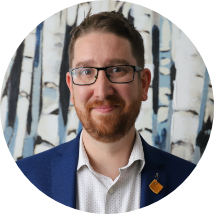
“Disease epidemics are not new for Indigenous people. There’s a deep history of disease epidemics here in Turtle Island, and so there’s a lot of intergenerational trauma being triggered right now by the COVID-19 pandemic.”
Jeffrey Schiffer, Executive Director, Native Child and Family Services of Toronto

“Reliable access to technology and internet is no longer a luxury. It’s an essential for education.”
Eugenia Addy, CEO, Visions of Science

“CERB was important in stabilizing the economy and ensuring that people stay at home to reduce the transmission of COVID, but it was a protection of those with recent labour market attachment. Those who are lower-income and who are on social assistance received much fewer federal supports.”
Garima Talwar Kapoor, Director of Policy and Research, Maytree
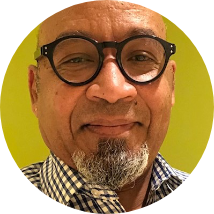
“It’s always cyclical attention for the Black community.”
Liben Gebremikael, Executive Director, TAIBU Community Health Centre

“There’s a growing inequity. People with wealth, space, time and the ability to support students at home can create these consistent rhythms. They are going to be able to learn, while other kids aren’t.”
Michael Carlson, Educator, Kapapamahchakwew – Wandering Spirit School

“Parks in underserved neighbourhoods often don’t fit the needs of the people who live around them. They are flat expanses of grass that lack infrastructure, few benches to sit on, no shelter or shade, no lights after dark, unstable paths to walk on, no barbeque pits, and old, rusty playgrounds that need to be replaced.”
Minaz Asani-Kanji, Manager of Outreach, Park People
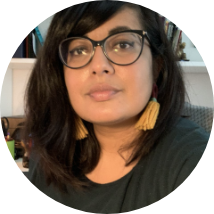
“Nobody who is not white and wealthy wants to go back to the way things were before, because a lot of the issues that we’re talking about in COVID pre-existed for a lot of communities.”
Mohini Datta-Ray, Executive Director, North York Women’s Shelter
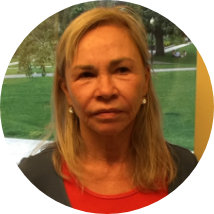
“Before, the focus was sometimes on taking the training and getting the job. Now, we’re building more of a continuum of training and getting as many skills as one can.”
Nancy Martin, Executive Director, Miziwe Biik Aboriginal Employment and Training

“Many racialized communities don’t have the luxury a 100-year history as a nonprofit or an organization with many locations and reach. I think we need to move out of that thinking of it being higher risk and find ways to mitigate that risk by enabling smaller grassroots organizations.”
Neethan Shan, Executive Director, Urban Alliance on Race Relations
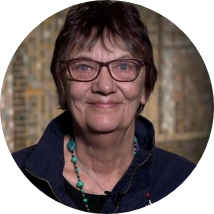
“The benefits of having the lodge are going to be multiple, for not only the women, but also the community, because we’re not going to have women going out and being so desperate that they reoffend. A lot of these offences are based out of the fact that these women are living in poverty.”
Patti Pettigrew, Founder and Executive Director, Woman Healing Lodge Society
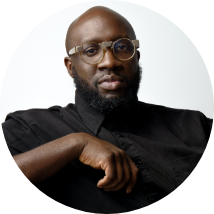
“These wicked problems, like poverty and food insecurity and homelessness, have long been offloaded or dumped on to charitable organizations that don’t have the capacity to solve them.”
Paul Taylor, Executive Director, FoodShare Toronto
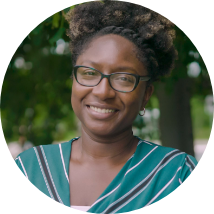
“Large new builds can displace people from a neighbourhood they have been living in for a long time, because they can no longer afford the neighbourhood. People are being fully displaced from their networks as they move farther outside of the city.”
Phylicia Davis-Wesseling, Founder and Program Manager, KGO Adult Literacy
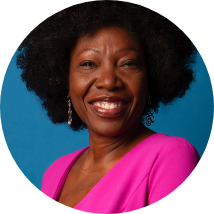
“A lot of services are now being offered by phone or virtually, but sometimes there are families that don’t have those resources.”
Ekua Asabea Blair, CEO, Massey Centre

“We need to take a trauma-informed approach. We take a 360 of an individual’s life and tackle whatever barriers that they might be facing to employment one by one, and no one is ever treated with a cookie-cutter way of handling pain.”
Agapi Gessesse, Executive Director, CEE Centre for Young Black Professional
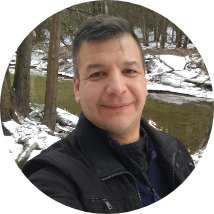
“We took a calculated risk in order to secure desperately needed affordable units by buying the property without all the construction funding.”
Steve Teekens, Executive Director, Na-Me-Res
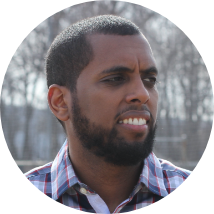
“We need to structure education in ways that make sense for everyone and for communities like ours at Jane and Finch that’s been one of the hardest hit by COVID. How do we create an in-school learning experience where students are not afraid to come to school and get COVID.”
Tesfai Mengesha, Executive Director, Success Beyond Limits
Arts, Culture and Recreation
Arts, culture, and recreation are essential to our wellbeing. How can we ensure that everyone has access and that the sector is not further eroded by the pandemic?
Nonprofit Leaders
“When we’re in difficult times, when we’re trying to work through complex ideas, artists can help us really be laser-focused on what matters, and assess and encourage us to have open dialogue, encourage us to reflect. The arts are necessary in the good times, but even more so in the difficult times.”
Alica Hall, Executive Director, Nia Centre for the Arts
“Disease epidemics are not new for Indigenous people. There’s a deep history of disease epidemics here in Turtle Island, and so there’s a lot of intergenerational trauma being triggered right now by the COVID-19 pandemic.”
Jeffrey Schiffer, Executive Director, Native Child and Family Services of Toronto
“Reliable access to technology and internet is no longer a luxury. It’s an essential for education.”
Eugenia Addy, CEO, Visions of Science
“CERB was important in stabilizing the economy and ensuring that people stay at home to reduce the transmission of COVID, but it was a protection of those with recent labour market attachment. Those who are lower-income and who are on social assistance received much fewer federal supports.”
Garima Talwar Kapoor, Director of Policy and Research, Maytree
“It’s always cyclical attention for the Black community.”
Liben Gebremikael, Executive Director, TAIBU Community Health Centre
“There’s a growing inequity. People with wealth, space, time and the ability to support students at home can create these consistent rhythms. They are going to be able to learn, while other kids aren’t.”
Michael Carlson, Educator, Kapapamahchakwew – Wandering Spirit School
“Parks in underserved neighbourhoods often don’t fit the needs of the people who live around them. They are flat expanses of grass that lack infrastructure, few benches to sit on, no shelter or shade, no lights after dark, unstable paths to walk on, no barbeque pits, and old, rusty playgrounds that need to be replaced.”
Minaz Asani-Kanji, Manager of Outreach, Park People
“Nobody who is not white and wealthy wants to go back to the way things were before, because a lot of the issues that we’re talking about in COVID pre-existed for a lot of communities.”
Mohini Datta-Ray, Executive Director, North York Women’s Shelter
“Before, the focus was sometimes on taking the training and getting the job. Now, we’re building more of a continuum of training and getting as many skills as one can.”
Nancy Martin, Executive Director, Miziwe Biik Aboriginal Employment and Training
“Many racialized communities don’t have the luxury a 100-year history as a nonprofit or an organization with many locations and reach. I think we need to move out of that thinking of it being higher risk and find ways to mitigate that risk by enabling smaller grassroots organizations.”
Neethan Shan, Executive Director, Urban Alliance on Race Relations
“The benefits of having the lodge are going to be multiple, for not only the women, but also the community, because we’re not going to have women going out and being so desperate that they reoffend. A lot of these offences are based out of the fact that these women are living in poverty.”
Patti Pettigrew, Founder and Executive Director, Woman Healing Lodge Society
“These wicked problems, like poverty and food insecurity and homelessness, have long been offloaded or dumped on to charitable organizations that don’t have the capacity to solve them.”
Paul Taylor, Executive Director, FoodShare Toronto
“Large new builds can displace people from a neighbourhood they have been living in for a long time, because they can no longer afford the neighbourhood. People are being fully displaced from their networks as they move farther outside of the city.”
Phylicia Davis-Wesseling, Founder and Program Manager, KGO Adult Literacy
“A lot of services are now being offered by phone or virtually, but sometimes there are families that don’t have those resources.”
Ekua Asabea Blair, CEO, Massey Centre
“We need to take a trauma-informed approach. We take a 360 of an individual’s life and tackle whatever barriers that they might be facing to employment one by one, and no one is ever treated with a cookie-cutter way of handling pain.”
Agapi Gessesse, Executive Director, CEE Centre for Young Black Professional
“We took a calculated risk in order to secure desperately needed affordable units by buying the property without all the construction funding.”
Steve Teekens, Executive Director, Na-Me-Res
“We need to structure education in ways that make sense for everyone and for communities like ours at Jane and Finch that’s been one of the hardest hit by COVID. How do we create an in-school learning experience where students are not afraid to come to school and get COVID.”
Tesfai Mengesha, Executive Director, Success Beyond Limits
1.Fallout Report, pg. 89. Source: 2020 Toronto Nonprofit Survey conducted by Toronto Foundation. For more details see Appendix.
2. Citation mislabel.
3. Fallout Report, pg. 90. Source: WolfBrown, ‘COVID-19 Audience Outlook Monitor – Ontario,’ Hill Strategies Research Inc., 9 September 2020, https://hillstrategies.com/2020/09/09/covid-19-audience-outlook-monitor-ontario/.
4. Fallout Report, pg. 91. Source: “ “
5. Fallout Report, pg. 91. Source: Labour Force Survey. Statistics Canada. Table 14-10-0300-01, Actual hours worked by occupation, monthly, unadjusted for seasonality.
6. Fallout Report, pg. 92. Source: Toronto Foundation, ‘Toronto’s Vital Signs: Growing Pains Amid Narrow Gains Report 2019/20’.